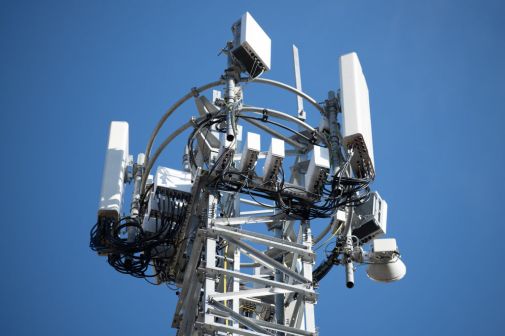The iconic figures of the net neutrality debate are the kids in the garage and the dorm, the next Steve Jobs and Mark Zuckerberg, the ones everyone wants to protect. They are working feverishly day and night to create the next Facebook, Twitter, Twitch, Shutterfly, YouTube. They think about their friends, new games they would enjoy playing and new ways to connect. They think about the creatures they are bringing to life and how to make them more appealing or more frightening. They think about the code they are writing, its elegance and efficiency. If they are far enough along, they think about attracting investors and marketing their inventions.
They do not think about price regulation, quality regulation, privacy regulation and myriad other regulations. They do not think about federal and state commissions, hearing rooms and courtrooms. They do not think about the endless paperwork needed to prove compliance with rules promulgated by all those commissions. They don’t have to, because the applications they are developing are not regulated.
They may not even know that the reason their work is not subject to regulation by the Federal Communications Commission and 50 state commissions is that it qualifies as an information service under the Communications Act. Each of their inventions will use telecommunications to reach its audience, but it inherently involves data manipulation and storage and, under the current FCC interpretation, that is enough to keep it from being a telecommunications service, which is enough to assure that it will not be subject to common-carrier regulation under Title II.
The Telecommunications Act of 1996 created a clear-cut distinction between an information service and a telecommunications service. Based on that distinction, the FCC classified broadband Internet access — which also blends telecommunications with data manipulation and storage — as an information service. The Supreme Court has affirmed the FCC’s interpretation of the law. But the FCC is now under tremendous pressure to reclassify broadband Internet access as a telecommunications service subject to common-carrier regulation under Title II. If it does so, many Internet services and applications will also find themselves subject to reclassification.
Blurring that distinction will change our kids’ thought process radically. Once they understand the innumerable obligations that being subject to federal and state regulation will place on them, every creative thought will be filtered through the questions: “Am I creating an information service or a telecommunications service?” and “How do I change it to keep it from being a telecommunications service?”
Creativity does not thrive when it is focused on bureaucratic contortions. The creators of Facebook, Twitter, Twitch, Shutterfly and YouTube did not sit in their garages and dorm rooms contemplating the burdens of Title II regulation and ways to evade them. But if the advocates of reclassification get their way, they might have. All of those platforms look like telecommunications services once you start asking where the line is drawn: Exactly how little data manipulation and storage does it take to slide from the nirvana of information service into the nightmare of telecommunications service?
If the FCC yields to the pressure to reclassify, it will inevitably blur the distinction between information services and telecommunications services. It will, no doubt, try to forbear from most of the regulations Title II automatically invokes, just as it will, no doubt, try to avoid trapping our kids in its net. But for many years, while the FCC’s forbearance is contested and its blurrier definition is tested and re-tested in court, our kids will be stuck in limbo. The investors they might have attracted will flee to less risky ventures. And if the courts decide that those automatically invoked rules should apply despite the FCC’s attempt to forbear, the FCC will not be able to undo the harm it never intended to do.
Millions of Americans have contacted the FCC, asking it to keep the Internet open. They want to protect these kids and their creativity. And they want to protect all those Internet services and applications on which they have come to rely and which they hope to adopt in the future. They want the FCC to enhance their choices, not to diminish them.
The alternate course using section 706 of the act, poses none of these dangers of reclassification. It allows the FCC to promulgate only those regulations that it believes are needed to protect the open Internet. It can target only those practices it considers harmful, and apply its rules only to those parties it intends to regulate. Section 706 provides a much safer way to protect the open Internet, our creative kids and consumers’ choices. It is the perfect example of the way the new network compact should work.
Anna-Maria Kovacs is a visiting senior policy scholar at Georgetown University’s Center for Business and Public Policy.




